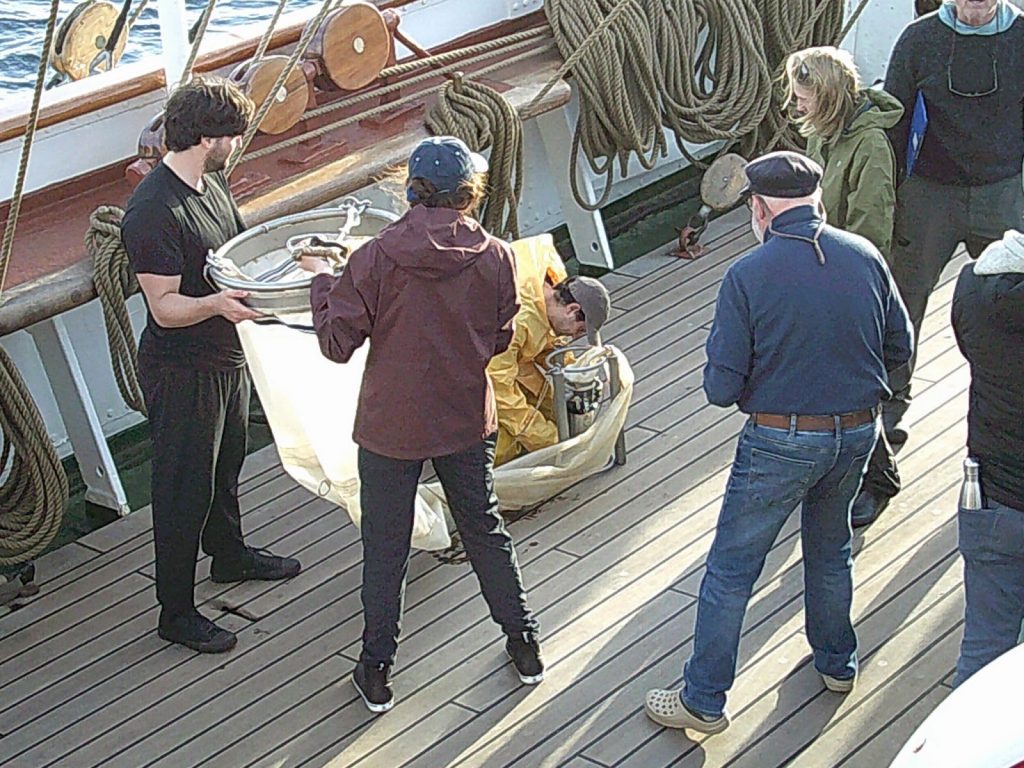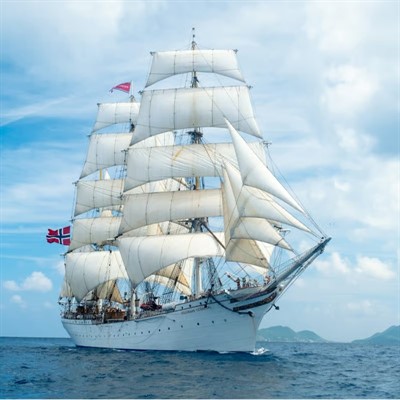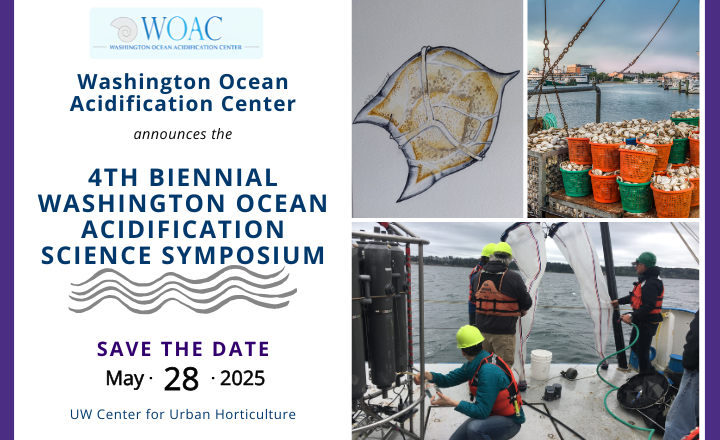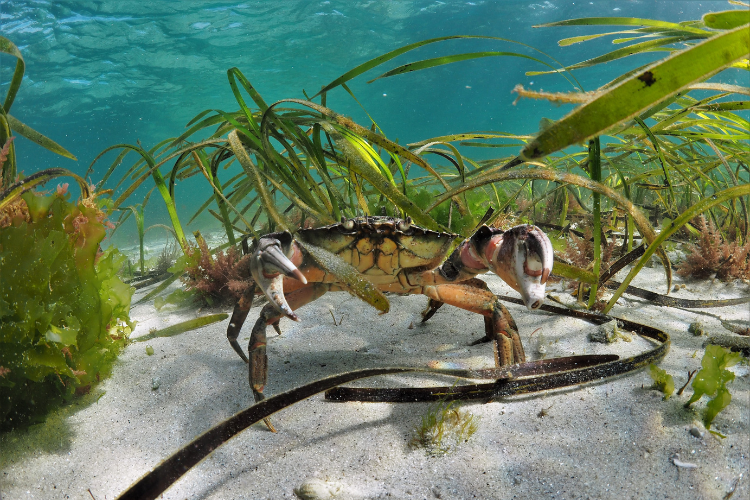Co-Director Terrie Klinger Retires
The Washington Ocean Acidification Center announces that Dr. Terrie Klinger, founding co-director of the Center, has retired from her faculty position at the UW School of Marine and Environmental Affairs as of 1 January 2026. The Center wishes to deeply acknowledge and thank Terrie for her service and vision as she brought groundbreaking research on Washington’s native marine species to reality.
Click on the headline or photo to read more about Terrie Klinger.
Modern Approaches to Harmful Algal Bloom Monitoring aboard the Historic Sailing Ship Statsraad Lehmkuhl
The Washington Ocean Acidification Center (WOAC) recently joined the One Ocean Expedition aboard the historic Statsraad Lehmkuhl, a three-masted sailing ship built in 1914. Departing from Seattle’s Pier 66 on October 27th, the ship charted a course south to San Francisco’s Pier 17, arriving on November 3rd.
Join WOAC, University of Bergen at One Ocean Week on Oct. 24th
The Washington Ocean Acidification Center will join the University of Bergen aboard the traditional sailing ship the Statsraad Lehmkuhl, for The Vast and Deep Ocean, part of the One Ocean Week series of events. Short presentations will be hosted throughout the event alongside scientific posters and demonstration tables. October 24th, 1-4 PM – Pier 66.
New Study: Pteropods Provide Early Insight Into Changing Ocean Conditions
Scientists have new information about how pteropods, tiny marine creatures so important to food webs they’re known as the “potato chips of the sea,” may fare under compounding environmental stressors.“We found that changing ocean conditions affect pteropods in multiple, overlapping ways, some of which could also be detrimental for long-term pteropod population sustainability ” Nina Bednaršek, a biological oceanographer at Oregon State University’s Hatfield Marine Science Center and the paper’s lead author, says.
Here’s what we stand to lose from NOAA funding cuts
Jan Newton, co-director of the Washington Ocean Acidification Center and executive director and principal investigator at NANOOS, was quoted in the article.
Agenda Announced! Join the 2025 Ocean Acidification Symposium
The Washington Ocean Acidification Center is pleased to announce our 4th Biennial Washington Ocean Acidification Science Symposium. This one-day event will be held May 28, 2025 from 8 a.m. to 4:30 p.m.
The Pacific Northwest-focused Ocean Acidification Symposium Returns!
Register now and join us for our one-day symposium on May 23 2023 at Wisteria Hall, located at the Graham Visitor Center of the Washington Park Arboretum.
WOAC Co-Director Jan Newton wins Marine Technology Society Award
Congratulations to Jan Newton for receiving the 2022 Lockheed Martin Award for Ocean Science and Engineering, courtesy of the Marine Technology Society (MTS)! This award is presented to an individual who has demonstrated the highest degree of technical accomplishment in the field of marine science, engineering, or technology.
No “Safe Space” for 12 key ocean species on North American West Coast
For the generations who grew up watching Finding Nemo, it might not come as a surprise that the West Coast has our own version of the underwater ocean highway – the California Current marine ecosystem (CCME). New research led by Dr. Jennifer Sunday from McGill University and Dr. Terrie Klinger from the Washington Ocean Acidification Center within EarthLab at the University of Washington warns that climate impacts will significantly affect twelve economically and culturally important species home to the CCME over the next 80 years.
UN Ocean Conference Side Event | “Ocean Acidification: Co-designing data connections to underserved communities for equitable outcomes”
The University of Washington’s Washington Ocean Acidification Center and Ocean Nexus Center are hosting a side event “Ocean Acidification: Co-designing data connections to underserved communities for equitable outcomes” during the United Nations Ocean Conference in Lisbon, Portugal, on June 30th, 2022. The event will highlight successful partnerships with Indigenous, Small Island Developing States (SIDS), and other underserved communities on co-designing activities for adaptation and response strategies.







